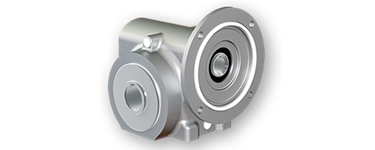Mobile:+86-311-808-126-83
Email:info@ydcastings.com
Types of Impellers for Water Pump Applications and Their Benefits
Types of Water Pump Impellers An Overview
Water pumps are essential components in various applications, ranging from industrial processes to irrigation systems. One of the critical elements of a water pump is the impeller, which is responsible for converting rotational energy into hydraulic energy. Impellers come in different types, each designed for specific applications and operational requirements. Understanding the various types of water pump impellers is crucial for selecting the right pump for your needs.
1. Centrifugal Impellers
Centrifugal impellers are the most common type found in pumps. They work by utilizing centrifugal force to propel water outwards from the center of rotation. The design usually features curved blades, which help in efficiently moving large volumes of water at high speeds. Centrifugal impellers can be further classified into several subtypes
- Open Impellers These impellers have no cover plates and consist of only the blades. They are suitable for pumping fluids with larger solids, as the open design helps in preventing clogging. However, they are less efficient than closed impellers.
- Closed Impellers These impellers have blades that are sandwiched between two plates, creating a more efficient design. Closed impellers are often used in applications requiring higher pressure and better hydraulic performance.
- Semi-Open Impellers These impellers possess characteristics of both open and closed designs. They have a cover on one side and are useful for handling fluids with some solids while maintaining reasonable efficiency.
2. Positive Displacement Impellers
Unlike centrifugal impellers, positive displacement impellers move water by trapping a fixed amount of fluid and forcing it out of the pump. This type of impeller is commonly found in gear pumps, diaphragm pumps, and screw pumps. Some subtypes include
water pump impeller types

- Gear Impellers These utilize interlocking gears to create a vacuum that draws fluid in, which is then pushed out as the gears rotate. They are ideal for transferring viscous fluids and providing a constant flow regardless of pressure changes.
- Diaphragm Impellers These use a flexible diaphragm that expands and contracts to create a pumping action. Diaphragm pumps are renowned for their ability to handle corrosive or abrasive liquids, making them suitable for chemical applications.
- Screw Impellers These feature a helical screw design that moves fluid along the screw axis. They provide a smooth and continuous flow, making them effective for applications requiring low shear and handling of delicate fluids.
3. Vortex Impellers
Vortex impellers create a vortex flow in the pump, which aids in moving water without direct contact with the impeller blades. This design is particularly effective in pumping fluids with solids or debris, as the vortex action helps to minimize clogs. Vortex impellers are commonly used in wastewater treatment, sewage handling, and applications where the fluid contains solids that could damage other types of impellers.
4. Propeller Impellers
Propeller impellers are typically used in applications involving low head and high flow rates, such as in irrigation and industrial cooling systems. The design resembles a ship's propeller, and it moves fluid by directly pushing it along the axis of rotation. Propeller pumps are efficient for large volumes of water but are less effective when it comes to creating high pressure.
Conclusion
Choosing the right impeller type is crucial for the efficiency and effectiveness of water pumps in various applications. From centrifugal to positive displacement, vortex, and propeller designs, each impeller type possesses unique characteristics that cater to specific pumping requirements. Understanding these differences can significantly influence the performance and longevity of your pumping system, ultimately leading to better outcomes in water management processes. Whether you are involved in industrial operations, agricultural irrigation, or wastewater management, knowing the right type of impeller can enhance your system's performance and reliability.
-
Understanding Metal Casting TechniquesNewsApr.02,2025
-
Understanding Exhaust Manifolds for Enhanced Engine PerformanceNewsApr.02,2025
-
The World of Metal FabricationNewsApr.02,2025
-
Key Components for Pump and Turbo EfficiencyNewsApr.02,2025
-
Essential Tools for Automotive Maintenance and RepairNewsApr.02,2025
-
Durable Valve Components for Effective Water ManagementNewsApr.02,2025











